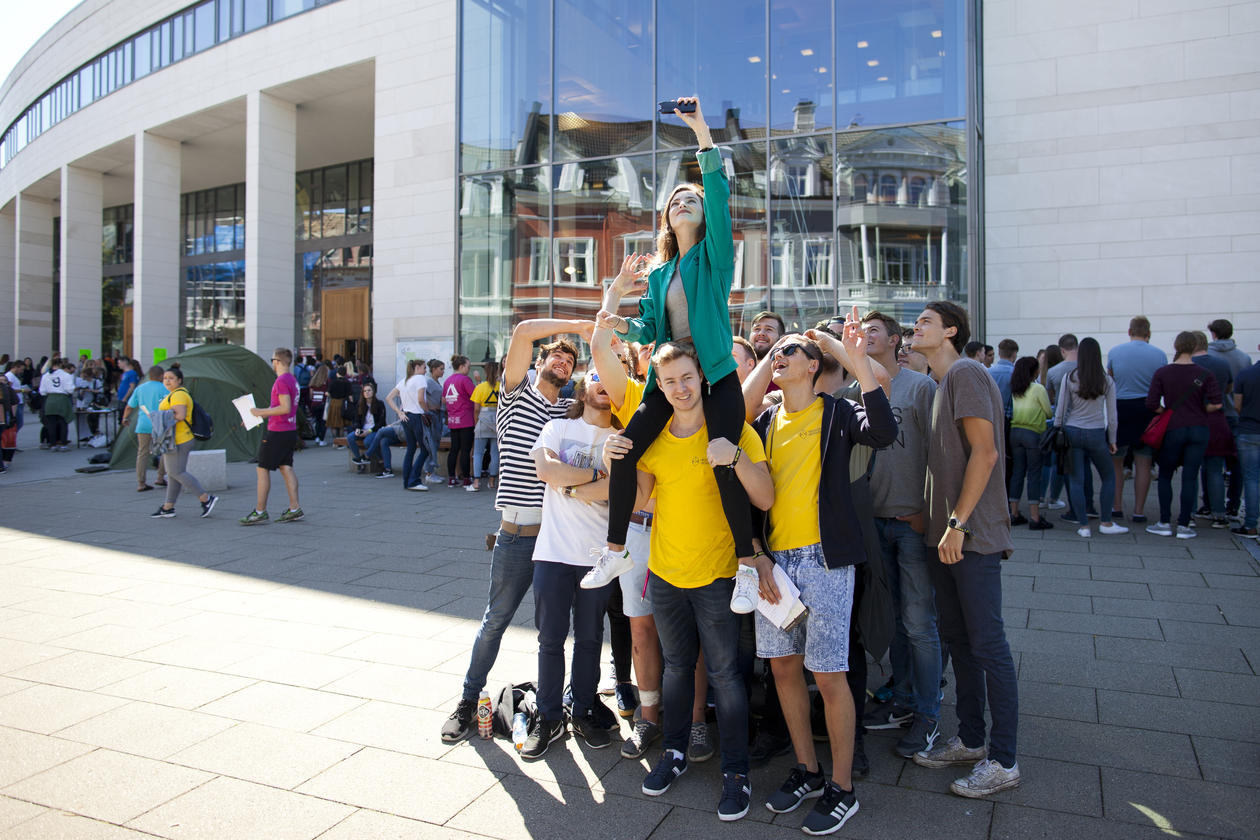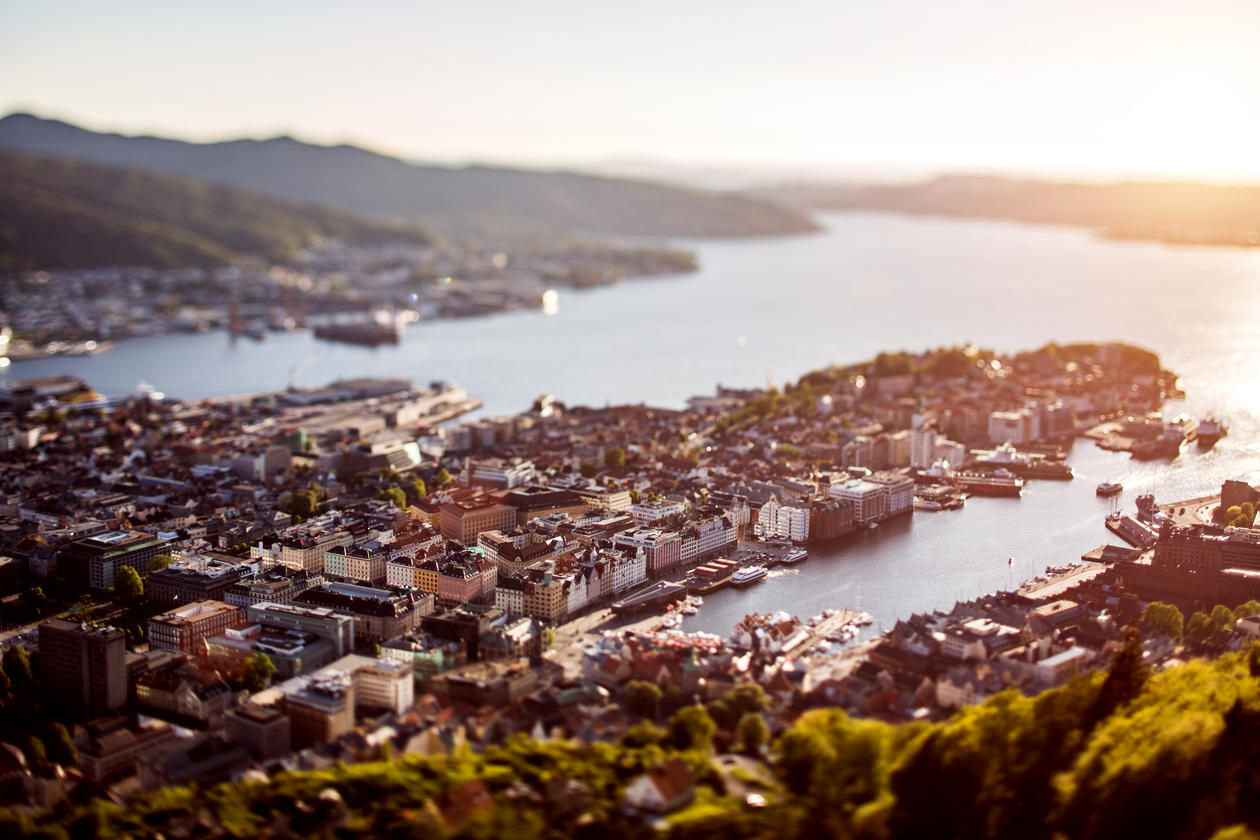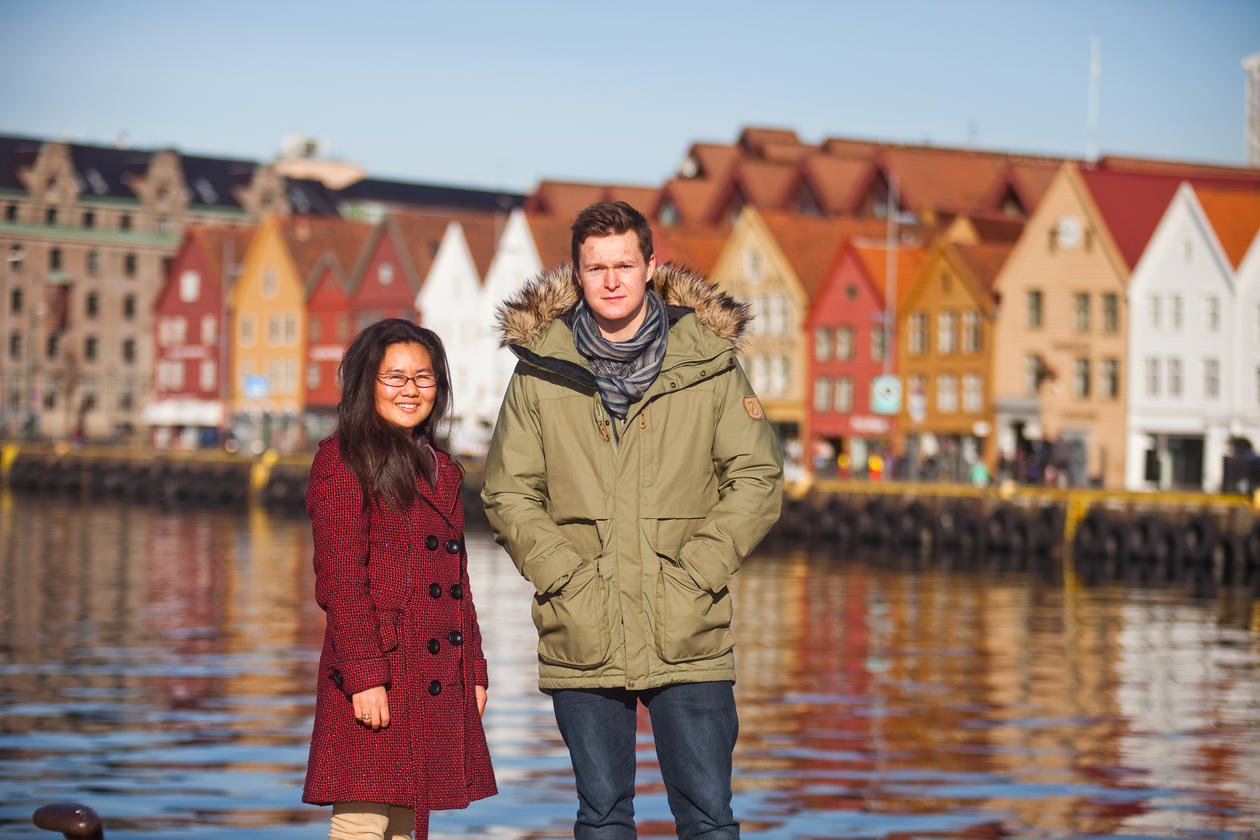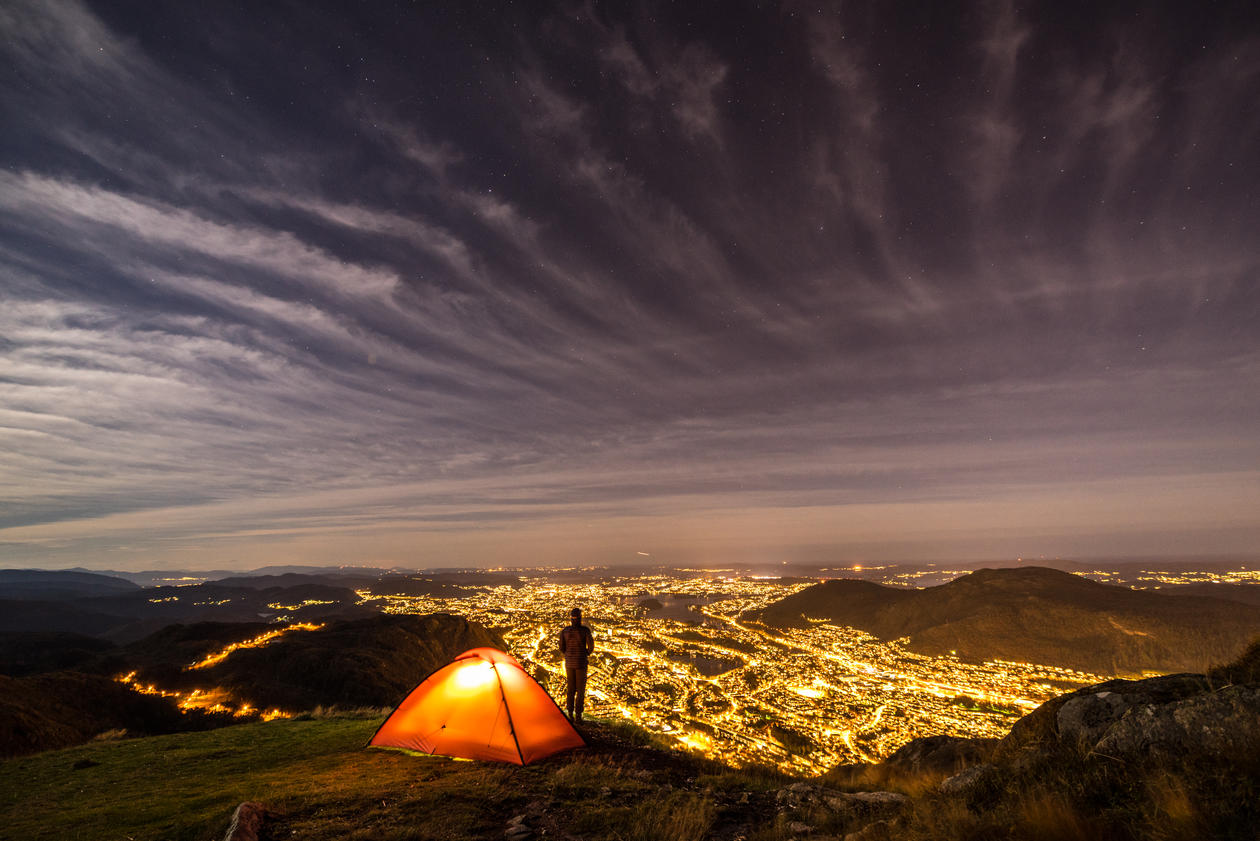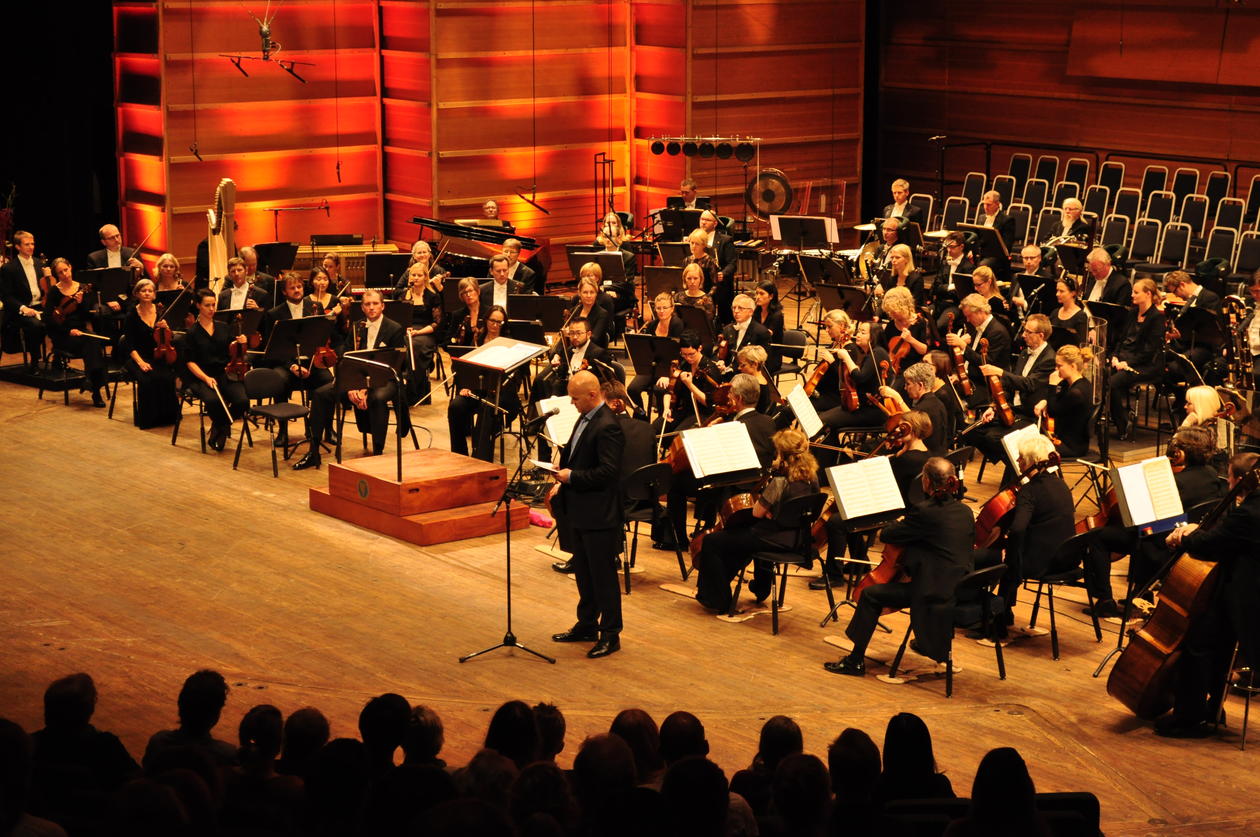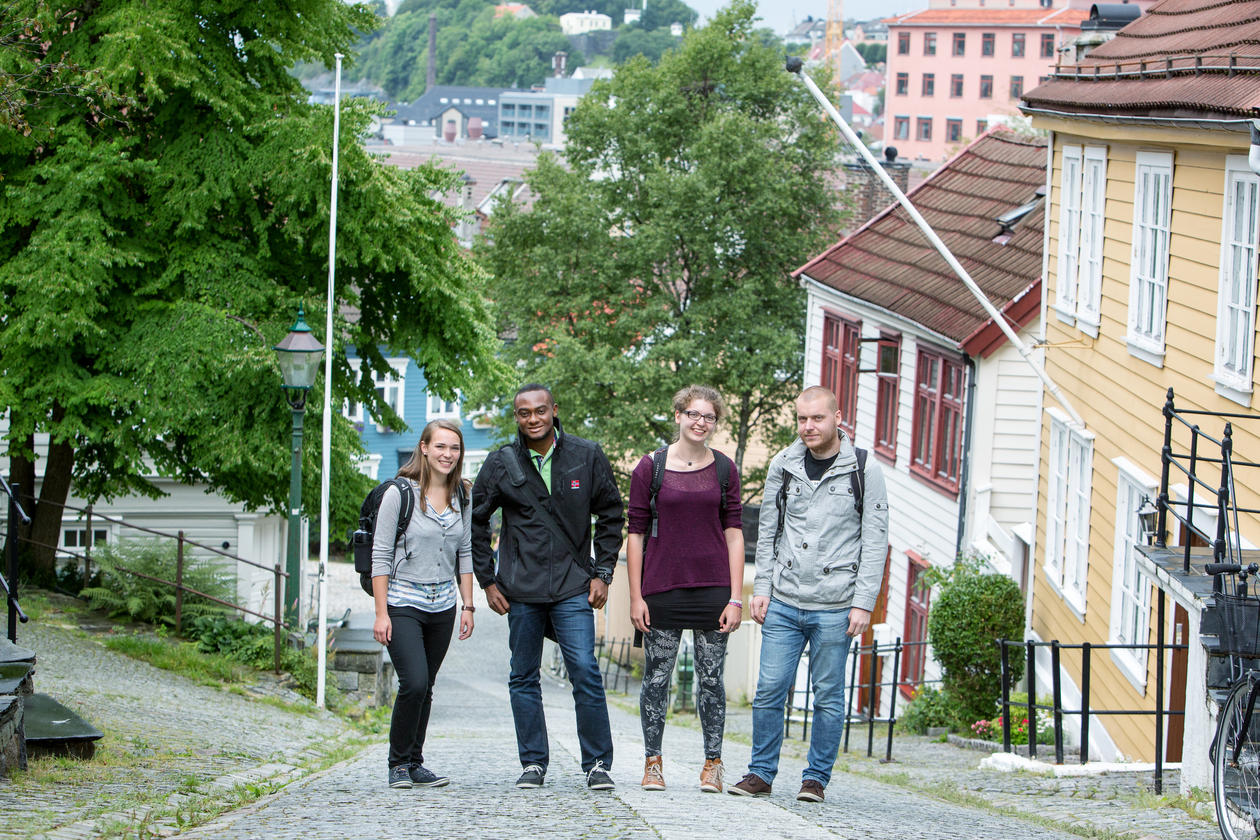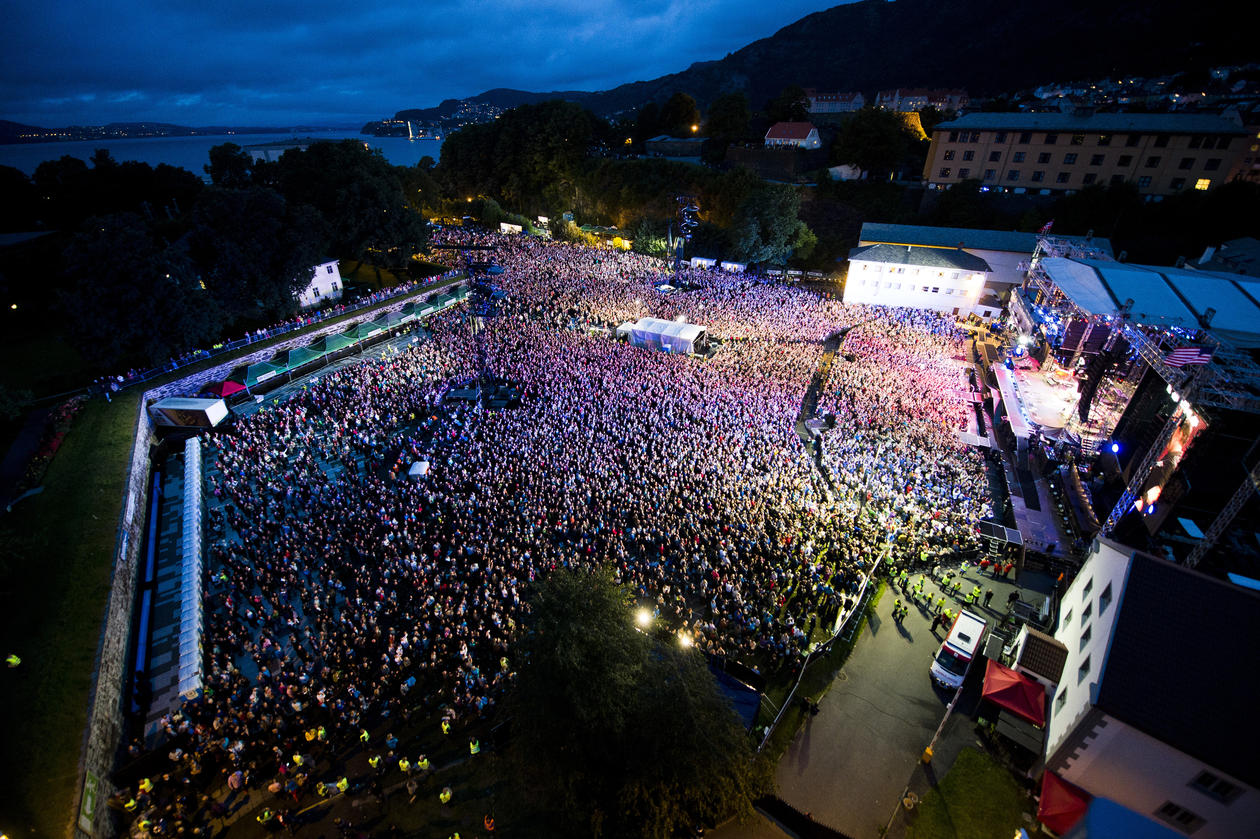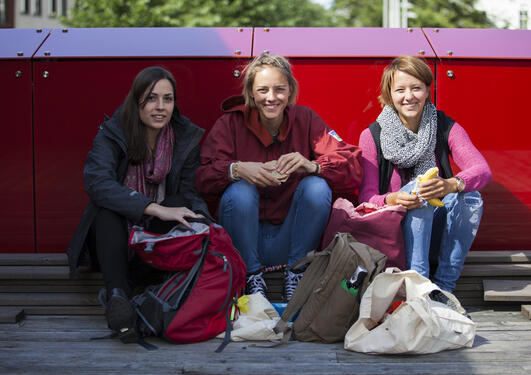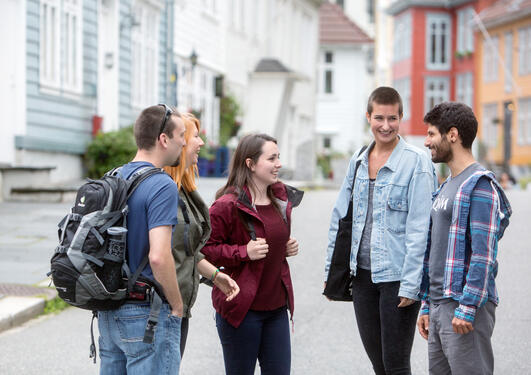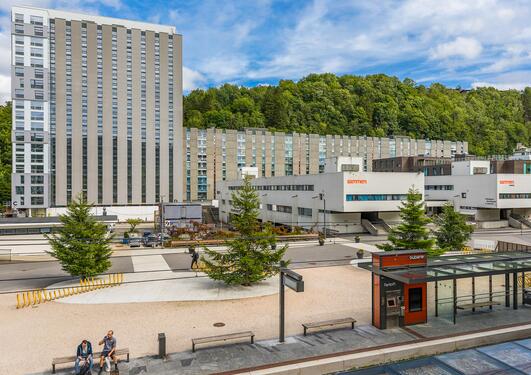Study in Bergen
Choose a safe and student-friendly city and study in the heart of beautiful Bergen.

Main content
Bergen is Norway’s second-largest city. With a population of 279, 000, it offers an appealing cultural life and a safe and relaxed urban atmosphere that remains deeply rooted in nature.
Students in Bergen
During the academic year, the city of Bergen is home to about 25,000 students (roughly 10% of the city’s population). Around 17,500 of them attend the University of Bergen (UiB), one of Norway’s most international institutions. UiB fosters an international environment where students come in contact with people and knowledge from all over the world.
The University of Bergen is also the most urban university in Norway, with most of its campus concentrated in the heart of the city. The prevelance of students in Bergen gives the city a youthful and modern feel, and creates an atmosphere of enthusiasm and optimism.
Nature in Bergen
Surrounded by mountains and seated near the fjords, Bergen provides unique opportunities for outdoor adventures.
Wander Bergen’s “seven” mountains
- Hiking can begin at your doorstep, several mountain trails are walking or bus distance from the Sentrum (city centre), including Fløyen. Each year, Bergen hosts the 7 Mountains Hike, about 35km or 22mi of traversing up and down mountains. Some have made it in as fast as 3 hours 21 minutes (running), others have taken 17-18 hours. You can explore Bergen’s mountains in more digestible segments, however, throughout the year!
- Have the true Norwegian Hytte (cottage) experience
- Before you head out in the mountains, make sure you are wearing appropriate gear and that you know how to be properly prepared.
Explore notable nearby fjords
- Hardangerfjord, the queen of fjords, seated in a region considered one of the most beautiful in Norway, is the second longest fjord in Norway. ~2.5hrs away from Bergen by car.
- Sognefjord, the King of fjords, is the longest, deepest fjord in Norway. ~5.5hrs from Bergen by boat.
Take an organised fjord tour or arrange a self-made adventure.
Take advantage of outdoor organisations
- BSI Friluft: Arranges outdoor excursions for student (and former student) members at Bergen-area schools. Activities include skiing, glacier trips, cabin trips, camping, hiking, biking, horseback riding and more!
- The Norwegian Trekking Association: Norway’s largest outdoors organization. It seeks to offer environmental-friendly and versatile activities to its members.
Read student reactions to having nature just outside the university’s doorstep here.
Bergen's History
Founded in 1070, Bergen has a long history of shipping, fishing and trading. Bergen was thought to have functioned as Norway’s capital city in the 13th century, but by the 14th century Oslo became the capital. German Hanseatic merchants settled in Bergen in the early Middle Ages, dealing in Stockfish (dried cod). Bergen enjoyed trading monopoly with Northern Norway until 1789. The Stockfish trade was the primary reason Bergen was historically one of Northern Europe’s largest trading centers. Of course, Bergen was not immune from a number of unfortunate events including the black plague (1349), attacks from pirates (14th and 15th century), battles such as the Battle of Vågen (1665), and a great many fires. Additionally, during WWII, Bergen was occupied by the Germans. The city was damaged several times by war-related events.
Get more details about Bergen’s history here.
Bergen - A Cultural Hub
Film, music, dance, and art: Bergen culture offers something for everyone.
Bergen has cultural offerings that will satisfy a vast array of interests. Bergen hosts concerts regularly, in genres from classical to contemporary. Bergen contains an internationally respected symphony orchestra and many consider it the birthplace of black metal. Bergen is the home of Den Nationale Scene (DNS) (the National Theatre), a modern theatre with meaningful historical roots.
Additionally, Bergen not only houses the Norwegian national contemporary dance company, Carte Blanche, but a number of museums and art galleries. Among them, Kunsthall is regarded as one of Europe’s premier arenas for contemporary art and KODE is one of Scandinavia’s largest museums focused on art, craft, design and music.
Venues to Visit in Bergen
Here are a few highlights from a long list of event venues in Bergen:
- Hulen –a former air-raid shelter turned student-run rock venue
- Bergenhus Festning – one of the oldest, best preserved Norwegian fortresses hosting a variety of large scale events including festival events and major concerts
- Grieghallen – named for local composer Edvard Grieg (1843-1907), this concert hall hosts opera, ballet, concerts and events.
- USF Verftet – a former sardine factory turned art arena hosting concerts, films, and other programmes.
- Litteraturhuset – a cultural center and bookstore that houses author presentations, academic discussions, debates and more.
Festivals Set in Bergen
Bergen regularly hosts festivals and popular celebrations for people interested in all kinds of music and for those who like film, theatre, food and dance. Here are a few examples of the many festivals that occur annually:
- Borealis Festival – An experimental music festival. Occurs in March.
- The Bergen International Festival – the international festival, held each year at the end of May, is a major cultural event and Northern Europe’s largest music and theater festival
- Nattjazz – Northern Europe’s longest jazz festival, featuring ~80 concerts annually. Occurs in late May/early June.
- Bergenfest – A four-day outdoor music festival featuring a multitude of genres. Occurs in June.
- Bergen Ølfestival (Beerfestival) – Norway’s largest beer festival, often featuring all of Norway’s breweries (38 in 2016). Occurs in early September.
- Bergen Matfestival (Foodfestival) – Among the largest local food festivals in Norway, Matfestival offers restaurants, stands from local food producers, and much more. Occurs in early September.
- Bergen Internasjonale Filmfestival (Bergen International Film Festival) – A festival offering more film screenings than any other film festival in Norway. Occurs in late September.
- Pepperkakebyen – An annual display of the world’s largest gingerbread city (since 1991). Occurs in late November/December.
We also recommend you to check out Study Bergen’s website for an overview of upcoming events, activities and student organisations in Bergen!
